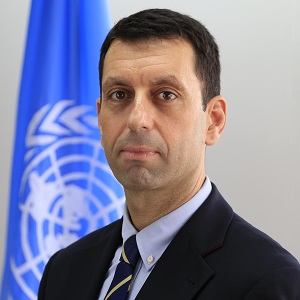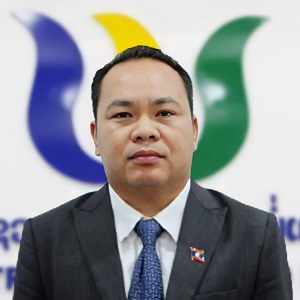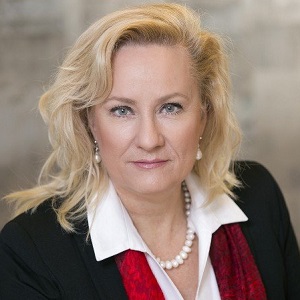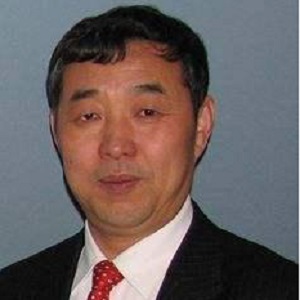The Singapore-IRENA High-level Forum will focus on the role of green energy financing and investments in realising the full potential of end user decarbonisation technologies towards a net-zero future.
Despite the progress in the energy transition, investments in the energy transition continues to remain fragmented and concentrated, with regions such as Southeast Asia and the rest of the Asia-Pacific region (excluding China, Japan, India) accounting for less than 8% of the total global investments. These trends clearly underscores the gaps and disparities in the energy transition which have exposed the risks that emerging countries and regions would find themselves in building critically needed energy projects that are crucial in ensuring energy security and resiliency. This is especially critical for regions such as Southeast Asia in the face of a surge in energy demand and the effects of climate change where plans are underway to accelerate the region’s energy transition and initiatives under the ASEAN Plan of Action for Energy Cooperation (APAEC).
Against this backdrop, Singapore and IRENA will co-host the 2nd- High-level Forum at SIEW 2022 with the theme “Realising Green Energy Financing and Decarbonisation Opportunities for a Net-Zero Future". This Forum provides an opportunity for high level government representatives, financial institutions, development partners and industry leaders, to come together to take stock and identify green financing pathways to strengthen the pathways for end use decarbonisation technologies in the road to net-zero.
| Time (GMT +8) | Session |
| 14:00 – 14:05 hrs | Welcome Remarks
 | Dr Tan See Leng
Minister for Manpower and Second Minister for Trade and Industry
Republic of Singapore |
|
| 14:05 – 14:10 hrs | Opening Address
|
| 14:10 – 14:15 hrs | |
| 14:15 – 14:25 hrs | 2nd ASEAN RE Outlook Report Presentation |
14:25 – 15:15 hrs
| Session 1 – Scaling Decarbonisation Technologies
Presented by

As the world races to average global temperature below 1.5°C from pre-industrial levels, decarbonisation technologies such as green hydrogen represents a game changer for the global energy transition. For it to be meaningfully deploy, there are significant challenges that the international community must work together to overcome. Proactive policy making is needed to strengthen the deployment of these decarbonisation technologies especially in hard-to-abate sectors. This session will focus on how the international community can come together to scale and address the challenges and opportunities in forging a low-carbon, resilient energy future together. - What steps can governments and industry stakeholders take to facilitate and scale the deployment of low-carbon decarbonisation technologies?
- What role can technologies such as hydrogen, CCUS play in enhancing energy security and resiliency?
- How can cross-border energy trade enhance the development of low-carbon technologies?
Keynote
 | Rida Mulyana
Secretary General, Ministry of Energy and Mineral Resources
Indonesia |
Panel Discussion Speakers
 | Kaveh Zahedi
Deputy Executive Secretary
United Nations Economic and Social Commission for Asia and the Pacific (UNESCAP) |
 | Elizabeth Urbanas
Deputy Assistant Secretary of International Affairs
Department of Energy, United States |
 | Dr Akhomdeth Vongsay
Director General, Department of Planning and Cooperation
Ministry of Energy and Mines, Lao PDR |
.jpg?sfvrsn=593d1779_0) | Mr Raymond Poon
Deputy Director, Electrical Mechanical and Mechanical Services Department
Hong Kong SAR |
Moderator  | Gurbuz Gonul
Director of Country Engagement and Partnership
IRENA |
|
| 15:15 – 16:05 hrs | Session 2 – Fostering Green Financing Leadership
Presented by

Investments in the energy transition continues to remain fragmented and concentrated. For the energy transition to become truly global, access to financing has to widen considerably, with more than USD 115 trillion of investments needed by 2050. Against this backdrop of challenges and opportunities, there is an impetus for both the public and industry leaders to enhance and foster fiscal and non-fiscal incentives and instruments such as carbon markets and carbon credit trading, to support the development bankable clean energy opportunities in for the global energy transition. As the world collectively work towards a net-zero future, this session will address how global business leaders, policymakers, and investors can be leaders in bridging the gaps in green energy financing.
- How can we unlock opportunities to strengthen bankable green energy financing projects for the Southeast Asian region?
- Where are the opportunities in which the public and private sector can complement each other to address the financing gap?
Keynote  | Luca Tonello
Managing Director, Structured Finance
Department, Asia Pacific
SMBC |
Panel Discussion Speakers  | Kai Ngian
Co-Head of Origination & Structuring
Clifford Capital |
 | Suzanne Gaboury
Director General for Private Sector Operations Department
ADB |
.png?sfvrsn=b7ef1679_0) | Christian Krebs
Head of Investment, Head of Investment and Development, APAC
Aquila Capital |
 | Luca Tonello
Managing Director, Structured Finance
Department, Asia Pacific
SMBC |
 | Li Junfeng
President
Chinese Renewable Energy Industry Association |
Moderator .jpg?sfvrsn=52871679_0) | Laura Ashton
Co-Founder and Chief Executive Officer
Low Carbon Advisors |
|